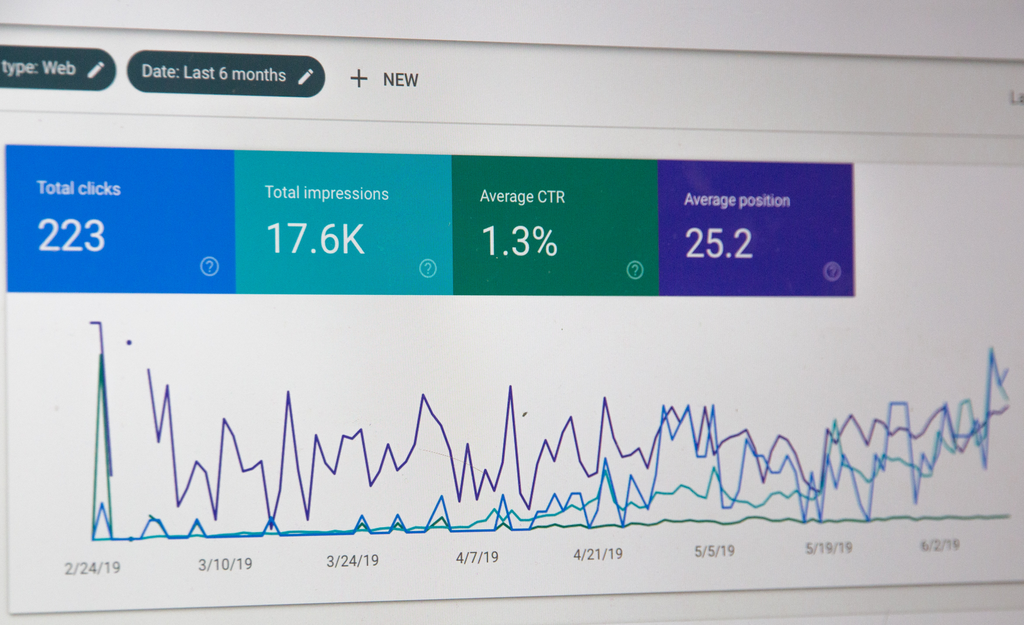Why SEO Matters for Your Business Website
Everything you need to know about SEO in 2022
What is SEO?
SEO stands for search engine optimization. The primary goal of SEO is to expand your company’s online visibility, especially in organic search results. The more effort you put into SEO the more traffic your website will receive, ultimately increasing your chances of conversion.
You can have a beautiful website with amazing functionality and persuasive messaging, but if your customers aren’t finding you then you’re pretty much dead in the water. The good news is there are a ton of ways to improve your website’s SEO.
We know that search engines like Google are scanning for title tags, keywords, image tags, internal links, and backlinks, so optimizing those things can result in a massive boost in your ability to get found online.
Today’s search engines are also looking at structure and design, visitor behavior, so having a professionally designed and structured website with user experience in mind also helps with your SEO.

How Does SEO Work?
SEO works by optimizing your website’s content, conducting keyword research, and eventually earning inbound links to increase your content’s ranking and website visibility. Although you can see results take effect on search engine result pages once a web page has been crawled and indexed by a search engine, SEO efforts generally take months to materialize.

SEO Rankings
Rankings is what search engines use to determine where to place a particular web page in the SERP (search engine results page). Rankings start at position number zero through the final number of search engine results for a query, and a webpage can rank for one position at a time. Over time if you keep working on a page, it will rise in the rankings and show up closer to the top of the results page.
Why is SEO Important?
As of June, 2021, 92% of internet searches take place through Google. 60% of people research a business online before making a purchase or booking an appointment. Early in their search process they rely on Google search engines to feed them their list of companies to vet. What this all equates to is that if you’re not showing up near the top of the SERP you never get a chance to prove yourself. You may have the best reviews, the most experience, and the best offer – but people will never know because they can’t find you.

How Does Google Rank Website Pages?
The only goal search engines are engineered to fulfill is to provide users with the most relevant answers or information.
This means everytime you type in a keyword or keyword phrase the algorithm will choose to show you the most relevant pages that match your query. They are ranked by relevance and authority.
- Relevancy: how well the content on the page matches the search query. To determine this search engines are looking for relevant keywords and keyword phrases throughout the page and in key areas like H2s on the page.
- Authority: looks at a website’s popularity on the internet. Google assumes that if a page is getting a lot of traffic then it must be providing value.
The way Google analyzes all of this information is through algorithms, which are kept secret. However, SEO experts are continually “cracking the code” and identifying what factors matter most to the Google algorithm.
What is SEO Strategy?
An SEO marketing strategy is a comprehensive plan that aims at getting more visitors to your website through search engines. Successful SEO includes on-page strategies, which use intent-based keywords, and off-page strategies, which earn inbound links from other websites.

The Three Main Components of a Strong SEO Strategy
A properly SEO optimized website will focus on three key SEO areas: technical, content, and links. Here’s the breakdown for each area and what you need to know.
1. Technical SEO
The main thing to keep in mind about technical SEO is that a website looks different to you compared to what it looks like to the algorithm. You see a collection of graphics, colors, and words. A search engine sees nothing but text and links.
As a result, anything the algorithm can’t render remains invisible. So in spite of your website looking great to you, Google might find the content inaccessible.
Other technical SEO aspects to consider include:
- Page speed
- URL structure
- Removing dead links or broken redirects
- Sitemap and Robots.txt files
2. SEO Content
When you use a search engine you’re always looking for content or information about a particular issue or problem. Whether you end up reading a blog, looking at a sales page, or watching a video, it’s all considered content.
For SEO, content is what helps gain greater search visibility.
Keyword Research
Keyword research is a critical component of optimizing your website’s content. Your goal is not to get everyone to your website, but to get the right people to your website. That’s only possible if your website ranks for the keywords those people use when searching for the type of services you offer. That’s why SEO strategy always starts with identifying the terms and topics that are relevant to your business.
On-Page Optimization
The other component to SEO content is on-page optimization, also called on-page SEO. The purpose of this is to ensure search engines understand a page’s topic and keywords, and can match it to relevant searches.
On-page optimization goes behind just the keywords you use in your content. It focuses on meta-tags like title or description and image file names and ALT tags.
3. Links
We know that relevance and authority are the driving factors behind SEO optimization. Technical setup and content focus on increasing relevance. Links, however, are all about building authority in the eyes of the algorithm.
Links are also called backlinks, and are basically references to your content posted on other websites. Every time another website mentions and points their readers to your content, you gain a backlink to your website and that builds your SEO authority.
The three most important factors in links include:
- The popularity of the linking site: a link from a website that search engines consider an authority will have a higher value.
- Topic relevance: links from domains that talk about similar topics to yours carry more authority.
- Trust in domain: search engines evaluate a website’s trust, and links from higher ranking websites are more helpful.
Ready to Make Sure Your Business Gets Found Online?
Zeem Digital builds websites with SEO in mind. This means during the design and development stage we take all of these important factors into consideration so when you launch your website it’s fully optimized and you’ll have a solid foundation to build upon.
